- 2008-2012 Westminster International University in Tashkent, BSc in Economics
- 2012-2014 University of Siegen (Germany), MSc in Economic Policy
Employment:
- 2015-2015 Chief Methodologist, Academy of Public Administration under the President of the Republic of Uzbekistan
- 2015-2018 Specialist in Project Finance Center, National Bank for Foreign Economic Affairs of the Republic of Uzbekistan
- 2018-2021 Head of the Department for Economic Forecasting and Financial Planning, Inha University in Tashkent
- 2021-2021 Head of the International Department, Inha University in Tashkent
- 2021-2021 Head of the Finance Department, New Uzbekistan University under the Agency for Presidential Educational Institutions of the Republic of Uzbekistan
Research interests:
Finance and Economic Management, Project Management, International Affairs, Corporate Governance.
Doctoral project
The title of the dissertation: “IMPROVING THE MECHANISM FOR ENSURING SUSTAINABLE GROWTH OF E-GOVERNMENT SYSTEM MANAGEMENT INDICATORS’’
E-government, Electronic Government, or Digital Government is defined as interactions that take place between government and people in digital form. Defined narrowly as the use of information and communication technology (ICT) in a way that enhances the government services provided to businesses and citizens, including government organizations and their employees.
E-government in a broad sense has been practiced for 60 years, since the first use of the mainframe in the statistical office. Otherwise, we can imagine that E-government is only 20 years old. In any case, the use of E-government has been spreading worldwide since its inception and to this day. Several E-government projects are created every day, yet many of them fail. In 2013, Dawes wrote: “the failure rate of investments in ICTs to meet governmental needs remains high and consumes both resources and credibility”.
In 2014, a report claimed that 60% to 80% of E-government projects fail to meet their set goals, although little data is available. The failure of E-government projects is mainly caused by poor implementation, which in turn is the result of contradictions between the goals and needs for which these projects were set up and what is happening in reality. Therefore, there is a great need for methods, models, and/or decision aids that can help to check the results of start-up projects or to make decisions in the planning phase in order to increase the probability of success.
E-government system like any other Information System is a socio-technical system, composed of various components: software, hardware, telecommunications, data, people, and procedures. Considering the interactions between these components, particularly the management process and the human resources component, many ways could be proposed to improve its performance. The interactions between these components are dynamically complex. One of the most suitable methods to be used in modeling them is to apply system dynamics modeling.
The major objective of the research is to build a system dynamics modeling of E-government and its empirical verification on the data of the E-government of Uzbekistan. This model, after proper validation, can serve as a tool for constructing optimal policy design in order to improve the mechanism for ensuring sustainable growth of the E-government system management indicators.
Publications
- Умарова Д.А. и Нуркулов Н.О. (2021) «Результаты изучения опыта развития электронного правительства в зарубежных странах на примере Южной Кореи, Дании, Эстонии, Белорусии и Казахстана». Материалы международного научного семинара «Повышение международного рейтинга Узбекистана на основе анализа показателей и методологии развития электронного правительства», Университет Инха в городе Ташкенте, 15 апреля, 2021 год.
- Умарова Д.А. и Шукуров Ж.С. (2021) «Вызовы и перспективы управления развитием технологий искусственного интеллекта в Узбекистане». Научный электронный журнал экономики и инновационных технологий №5, сентябрь-октябрь 2021 год, http://iqtisodiyot.tsue.uz
- Умарова Д.А. (2021) «Business Process Outsourcing in Uzbekistan: Key Aspects of Development». Рақамли иқтисодиёт шароитида сервис корхоналарини инновацион ривожлантиришнинг муаммолари ва истиқболлари” мавзусидаги Республика илмий-амалий анжуман маъруза материаллари тўплами, Самарқанд, СамИСИ, 2022 йил, 28 апрель.
Conference participations, scientific talks
Conference Participations, Scientific Talks:
- Proceedings of the International Scientific Seminar “On raising the position of Uzbekistan in international rankings based on the analysis of E-government development index and methodology”, April 2021. Inha University in Tashkent, Uzbekistan.
Other achievements:
- Certificate of Appreciation for her activity, initiative, and achievements in the work (Inha University in Tashkent) given by the Ministry for the Development of Information Technologies and Communications of the Republic of Uzbekistan, February 2021;
- Certificate of Internal Auditor of Quality Management System based on ISO 9001:2015 given by the CERT Academy, August 2020;
- Certificate of Development of Quality Management System based on ISO 9001:2015 given by the CERT Academy, January 2020.





